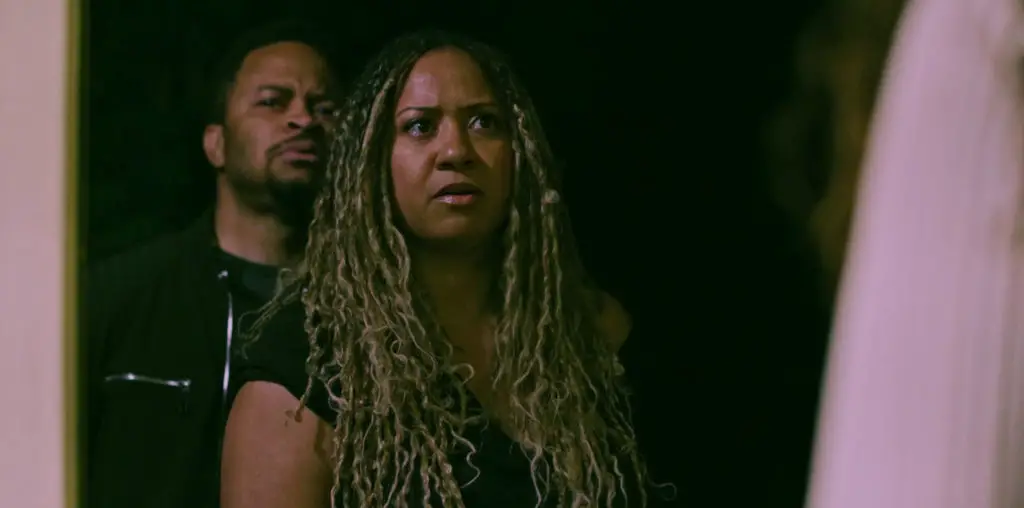
Reality TV has been around since well before “Survivor” launched us on our current unfortunate trend. (Which should have — please, God! — nearly run its course, by the way. I mean, “The Restaurant?!” What’s next, “The Barber Shop” or “The Dentist’s”?)
Anyway, one could make the case that documentaries were the first form of Reality TV. There are those, of course, who would argue quite convincingly that documentaries don’t actually capture reality because the mere presence of a camera is enough to change peoples’ behavior, thus altering the reality. Sort of a cinematic version of the Uncertainty Principal found in Physics.
Yet, what if a documentary’s subject was used to having cameras around? What if cameras, and not just one, mind you, but many photographers’ cameras and news cameras and what have you, were such a part of that person’s natural environment that they no longer had any effect on the subject’s behavior. Being before the cameras WAS reality to that person.
Now granted, this would only be the case for a small handful of people. Politicians are one such group of people who might meet this criterion, especially those who actually hold office. Someone like Hugo Chavez, for instance, the President of Venezuela and the subject of director Kim Bartley and Donnacha O’Briain’s stunning documentary “The Revolution Will Not Be Televised.”
Ironically, this is not the film the directors set out to make. For partway through their filming of what they’d intended to be a profile of the country’s left-leaning leader, a hero to his country’s poor and the powerless, a coup broke out. Led by Pedro Carmona, the president of Venezuela’s largest business federation, and Carlos Ortega, a throwback to the country’s old political system, (and perhaps supported by our government, the film whispers darkly), troops backed by the wealthy, educated right-wing elite briefly forced Chavez to step aside and took him into custody. After taking over the state-run television station — the Chavez government’s only counterweight to the inaccurate propaganda barrage spewn by the country’s private TV stations — the troops surrounded the presidential palace, trapping the rest of Chavez’ government — and the filmmakers — inside.
Even in this age of “embedded reporters” and bombs dropping on Baghdad under the glare of CNN’s klieg lights, “The Revolution Will Not Be Televised” is still a gripping example of “You Are There,” on the spot journalism, even if it is a little slim when it comes to motives and back stories. Filled with astonishing, often brutal images, “Revolution…” does a spectacular job of capturing the violence, chaos and confusion inside this oil-rich nation during the aborted coup. The film also does an excellent job of showing how powerful television has become in getting one’s message across…as well as how easily television and some creative editing can manipulate that very message.
Not that these filmmakers weren’t guilty of a little message massaging themselves, as they clearly had an agenda to lionize Chavez before the coup even broke out. The rightist’s heavy-handed actions just made it that much easier to do so.
Nonetheless, as all reality these days is relative, “The Revolution Will Not Be Televised” makes for riveting viewing, whichever reality one chooses to live in.
Disagree with this review? Think you can write a better one? Go right ahead in Film Threat’s BACK TALK section! Click here>>>
